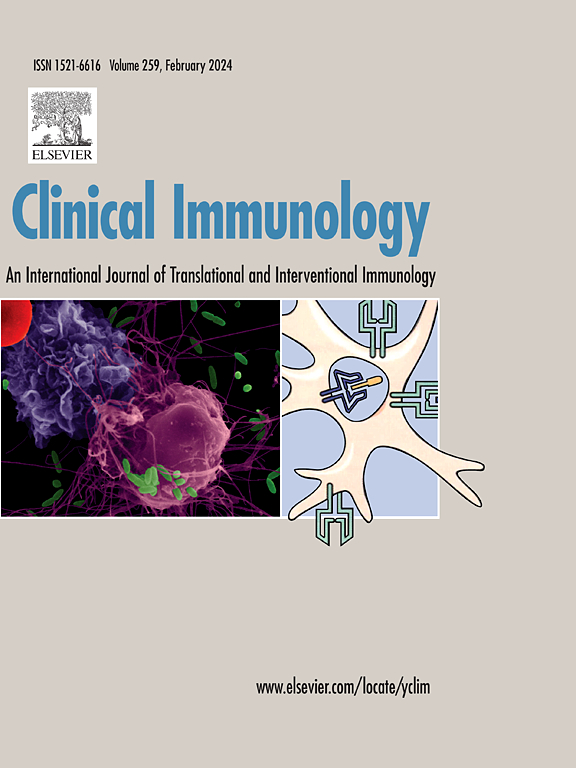交感神经通过β2-AR-Gsa激活M2巨噬细胞促进肾脏纤维化
IF 4.5
3区 医学
Q2 IMMUNOLOGY
引用次数: 0
摘要
交感神经系统过度激活与肾脏纤维化直接相关。本研究的重点是交感神经信号调节巨噬细胞活化的作用和机制,以及对肾脏纤维化的贡献。肾脏神经支配减轻了单侧输尿管梗阻和缺血再灌注损伤引起的肾小管坏死、肾小管间质纤维化和巨噬细胞聚集。在体外,去甲肾上腺素(NE)通过激活β2-肾上腺素能受体(β2-AR)和异三聚体G刺激蛋白α亚基(Gsa)促进巨噬细胞替代(M2)极化。β2-AR选择性拮抗剂和Gsa siRNA可阻断NE诱导的巨噬细胞M2极化效应。重要的是,在肾缺血再灌注损伤模型中,巨噬细胞中Gsa的消减减轻了肾小管间质纤维化、巨噬细胞聚集和M2极化。交感神经系统过度激活调节巨噬细胞的 M2 极化是肾脏纤维化的重要神经免疫机制。β2-AR-Gsa信号通路是NE诱导巨噬细胞M2极化的原因,这可能是肾脏纤维化的治疗靶点。本文章由计算机程序翻译,如有差异,请以英文原文为准。
Sympathetic nerve promotes renal fibrosis by activating M2 macrophages through β2-AR-Gsa
Sympathetic nervous system overactivation is directly related to renal fibrosis. This study focused on the role of and mechanism by which sympathetic signaling regulates macrophage activation, as well as the contribution to renal fibrosis. Renal denervation alleviated tubular necrosis, tubulointerstitial fibrosis, and macrophage accumulation induced by unilateral ureteral obstruction and ischemia-reperfusion injury. In vitro, norepinephrine (NE) promoted macrophage alternative (M2) polarization by activating β2-adrenergic receptor (β2-AR) and heterotrimeric G stimulatory protein α-subunit (Gsa). The effects of NE-induced macrophage M2 polarization were blocked by a β2-AR selective antagonist and Gsa siRNA. Importantly, ablation of Gsa in macrophages alleviated tubulointerstitial fibrosis, macrophage accumulation, and M2 polarization in the renal ischemia-reperfusion injury model. Sympathetic nervous system overactivation regulates M2 polarization in macrophages as an important neuroimmune mechanism of renal fibrosis. The β2-AR-Gsa signaling pathway was responsible for NE-induced macrophage M2 polarization, which may be a therapeutic target for renal fibrosis.
求助全文
通过发布文献求助,成功后即可免费获取论文全文。
去求助
来源期刊

Clinical immunology
医学-免疫学
CiteScore
12.30
自引率
1.20%
发文量
212
审稿时长
34 days
期刊介绍:
Clinical Immunology publishes original research delving into the molecular and cellular foundations of immunological diseases. Additionally, the journal includes reviews covering timely subjects in basic immunology, along with case reports and letters to the editor.
 求助内容:
求助内容: 应助结果提醒方式:
应助结果提醒方式:


